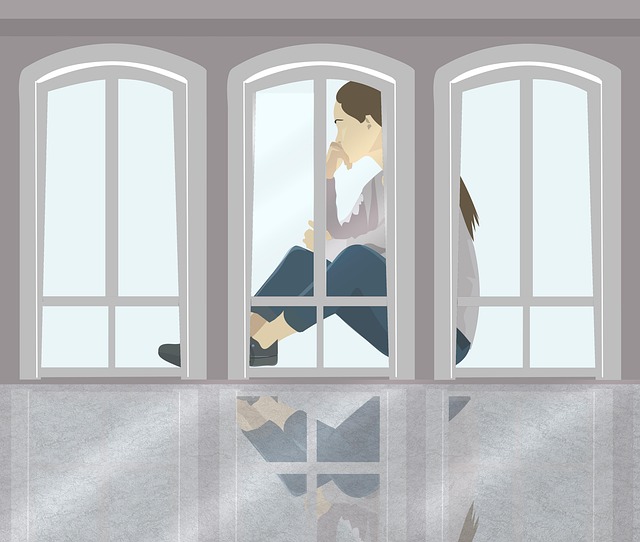Major Depressive Disorder (MDD) is a debilitating mental health condition requiring tailored depression treatment programs. These programs combine evidence-based therapies like Cognitive Behavioral Therapy (CBT), Interpersonal Therapy (IPT), and Mindfulness-Based Cognitive Therapy (MBCT), alongside medication such as SSRIs and SNRIs. CBT, in particular, targets negative thought patterns and behaviors, offering coping strategies for symptom management. This comprehensive approach addresses both symptoms and underlying causes, facilitating long-term recovery and improved daily functioning.
Depression affects millions, but understanding major depressive disorder (MDD) is the first step towards recovery. This comprehensive guide explores MDD symptoms and diagnosis, delving into various effective therapy approaches for depression treatment programs. From Cognitive Behavioral Therapy (CBT) to other psychotherapy options, we provide a detailed look at proven strategies. We also discuss the role of medication in these programs, offering insights into building a tailored and comprehensive depression treatment plan.
Understanding Major Depressive Disorder: Symptoms and Diagnosis

Major Depressive Disorder (MDD), commonly known as severe depression, is a mental health condition characterized by persistent feelings of sadness, loss of interest in activities once enjoyed, and a significant change in appetite or sleep patterns. It’s more than just feeling sad for a few days; it’s a debilitating condition that can last for months and significantly impact daily functioning. Symptoms may include persistent sadness, hopefulness or pleasure lessened, significant weight changes, insomnia or oversleeping, fatigue, feelings of worthlessness, diminished concentration, and recurrent thoughts of death or suicide.
Diagnosis involves a comprehensive evaluation by a qualified healthcare professional, typically a psychiatrist or clinical psychologist. This process includes a detailed personal and family history, a physical examination, and standardized assessment tools to evaluate symptoms and their severity. The American Psychiatric Association’s Diagnostic and Statistical Manual (DSM-5) is often used as a reference for diagnosing MDD. Effective depression treatment programs may include psychotherapy, medication, or a combination of both, tailored to the individual’s unique needs and symptom presentation.
Common Therapy Approaches for Depression Treatment

Depression treatment often involves a combination of various therapy approaches tailored to the individual’s needs. One common method is depression treatment programs centered around cognitive-behavioral therapy (CBT), which helps patients identify and change negative thought patterns and behaviors contributing to their depression. By learning coping strategies, individuals can better manage symptoms and improve their overall well-being.
Another effective approach is interpersonal or psychodynamic therapy, focusing on relationships and past experiences. This therapy explores how personal interactions and historical traumas might influence current mood and behavior, providing patients with insights to resolve underlying issues. Combining these evidence-based depression treatment programs can offer comprehensive care, addressing both the symptoms and underlying causes of depression for more effective long-term recovery.
Cognitive Behavioral Therapy (CBT): A Step-by-Step Guide

Cognitive Behavioral Therapy (CBT) is a structured and goal-oriented depression treatment program that focuses on identifying and changing negative thought patterns and behaviors. This step-by-step approach involves several key components. First, therapists help individuals recognize their distorted thinking and emotions, challenging them to question these unhelpful beliefs. Through this process, patients learn to distinguish between factual and subjective thoughts, enabling them to reframe negative perspectives.
The next phase involves setting achievable goals and learning new coping strategies. Therapists guide clients in trying out different behaviors and assessing the outcomes, reinforcing positive changes. This iterative process helps individuals gain a sense of control over their lives and emotions. Over time, CBT equips people with the tools to manage depressive symptoms, promoting long-term recovery and improved overall well-being.
Other Effective Psychotherapy Options

When considering depression treatment programs, it’s essential to know that various forms of psychotherapy have proven effective in managing major depressive disorder (MDD). Cognitive Behavioral Therapy (CBT) is a widely recognized and successful approach, focusing on identifying and changing negative thought patterns and behaviors. By learning new coping strategies and gaining insights into one’s thoughts and emotions, individuals can challenge and modify these destructive cycles.
Another powerful option is Interpersonal Therapy (IPT), which addresses relationship issues and social factors contributing to depression. IPT helps individuals understand and resolve interpersonal conflicts, improve communication skills, and build a stronger support network. Additionally, Mindfulness-Based Cognitive Therapy (MBCT) combines CBT techniques with mindfulness practices, offering a holistic approach to managing symptoms over the long term. These psychotherapy options provide valuable alternatives for those seeking depression treatment programs beyond medication.
Medication and Its Role in Depression Treatment Programs

Medication plays a significant role in many depression treatment programs, offering a crucial tool for managing symptoms and improving overall well-being. Selective serotonin reuptake inhibitors (SSRIs) are commonly prescribed as they increase serotonin levels in the brain, enhancing mood and reducing anxiety. Other types of medications, such as serotonin-norepinephrine reuptake inhibitors (SNRIs), can also be effective by affecting different neurotransmitters. These pharmaceutical interventions often work synergistically with therapeutic approaches like cognitive behavioral therapy (CBT).
By targeting specific chemical imbalances in the brain associated with depression, medication can provide rapid relief for some individuals. However, it’s important to note that response to treatment varies widely; what works for one person might not be as effective for another. Therefore, a personalized approach combining medication and psychotherapy is often recommended, allowing patients to gain coping strategies while addressing underlying causes of their depression.
Building a Comprehensive Depression Treatment Plan

When developing a comprehensive depression treatment plan, it’s crucial to tailor an approach that addresses the unique needs and challenges of each individual. Depression treatment programs can vary greatly in their methodologies, encompassing various therapeutic modalities. Cognitive-behavioral therapy (CBT), for instance, focuses on identifying and changing negative thought patterns and behaviors, while interpersonal psychotherapy (IPT) prioritizes improving relationships and social functioning. Some programs also integrate medication management, ensuring a balanced and effective strategy.
The ideal plan should be multi-faceted, combining different techniques to provide holistic support. This might include regular sessions with a mental health professional, participation in group therapy for peer support, and the integration of self-care practices like exercise, mindfulness, or creative outlets. By employing a diverse range of tools, individuals can navigate their depression with increased resilience and ultimately regain control over their well-being.
